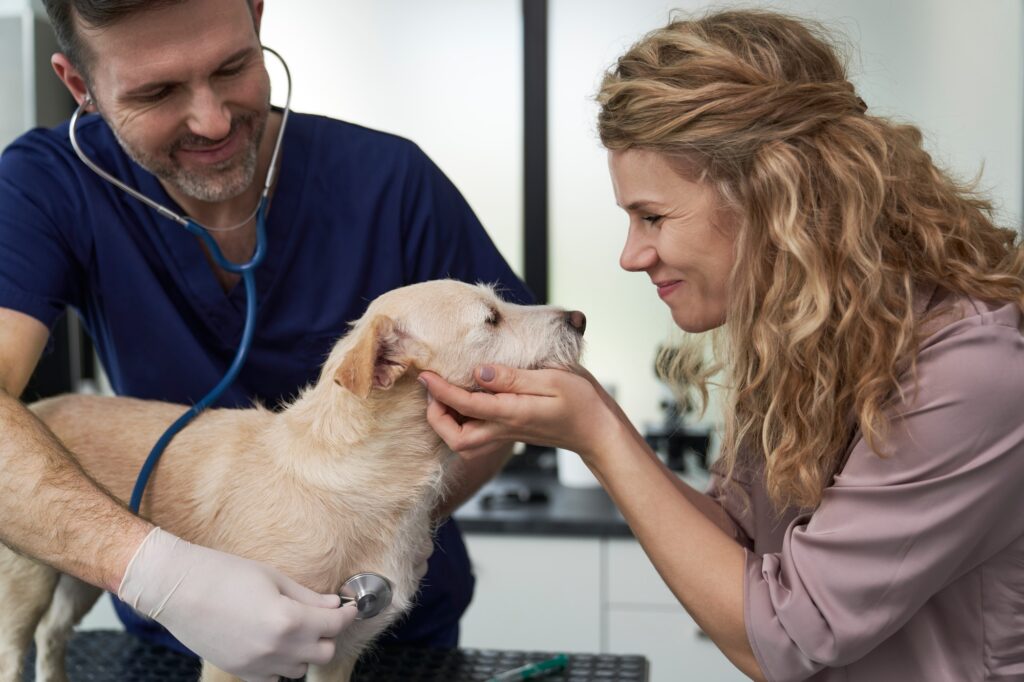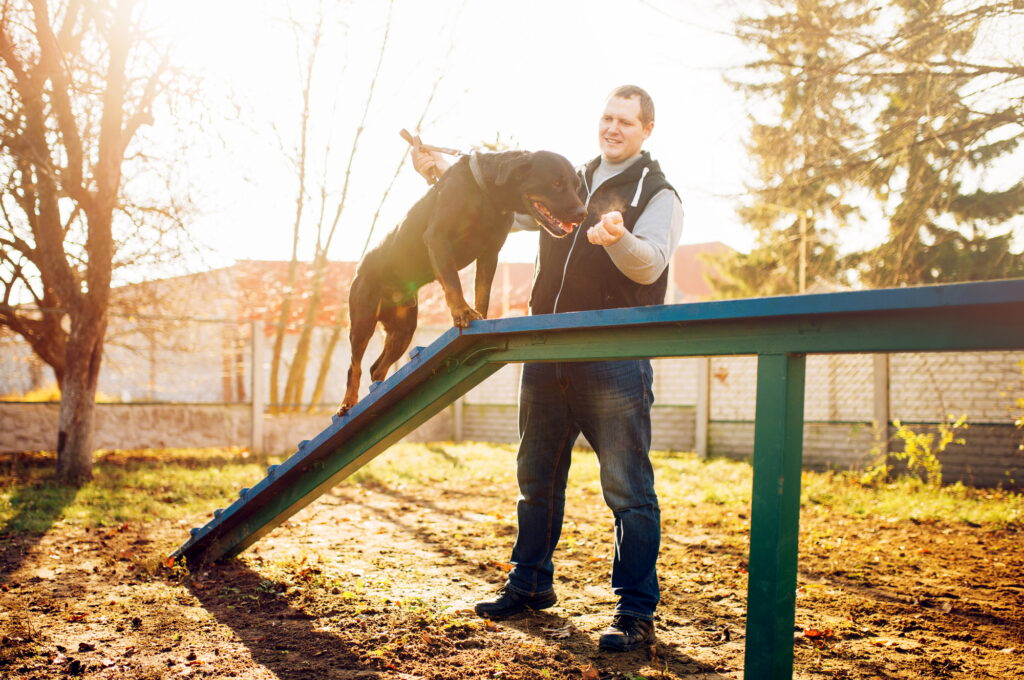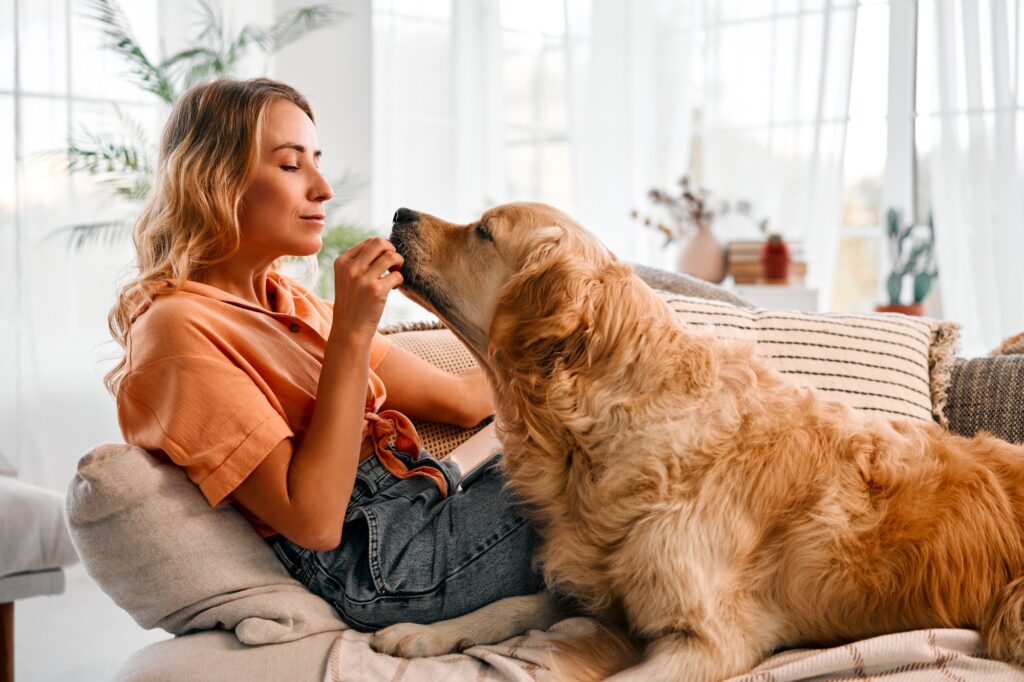What is Responsible Dog Ownership
Responsible dog ownership is a lifelong commitment beyond simply providing food and shelter. It encompasses a comprehensive approach to caring for your canine companion’s physical, emotional, and social needs. Being a responsible dog owner means understanding that dogs require consistent care, attention, training, and resources throughout their entire lives. This includes ensuring their health through regular veterinary care, providing proper nutrition, maintaining their safety, and dedicating time to exercise and companionship. Responsible dog ownership also involves being mindful of how your dog interacts with the community, following local laws and regulations, and ensuring your pet is properly identified and vaccinated. It’s about creating a strong bond with your dog while also being considerate of others and setting your furry friend up for a happy, healthy life.
What Responsible Dog Ownership Looks Like
Responsible dog ownership manifests in various essential practices that contribute to both your dog’s well-being and the harmony of your community. From making informed decisions before getting a dog to providing lifelong care and attention, responsible ownership encompasses multiple aspects of pet care. Here are some key components that define what it means to be a responsible dog owner, helping you understand the commitments and actions necessary to ensure your furry friend thrives while being a positive member of society.
Doing Your Research
Before bringing a dog into your life, responsible dog ownership begins with thorough research. Understanding different breeds, their characteristics, energy levels, and specific care requirements is crucial for making an informed decision. This research should include evaluating your lifestyle, living situation, and ability to meet a particular breed’s needs. Responsible dog ownership means considering factors like breed-specific health issues, grooming requirements, exercise needs, and temperament to ensure you can provide the best possible care. Additionally, research should include finding reputable breeders or adoption centers, understanding the financial commitments involved, and learning about local pet laws and regulations. Gathering this information helps create a strong foundation for a successful and fulfilling relationship with your future canine companion.
Scheduling Regular Vet Checkups

Regular veterinary checkups are a cornerstone of responsible dog ownership. They play a vital role in maintaining your pet’s health and preventing potential issues before they become serious. A responsible dog owner understands that preventive care through scheduled veterinary visits is essential for monitoring their pet’s overall well-being, keeping vaccinations current, and detecting health concerns early.
These checkups typically include comprehensive physical examinations, dental assessments, and discussions about nutrition, behavior, and age-specific health considerations. Through consistent veterinary care, owners can ensure their dogs receive necessary preventive treatments for parasites, maintain appropriate vaccination schedules, and get professional guidance on maintaining optimal health throughout their lives. Regular vet visits also provide opportunities to address any behavioral concerns or changes in your dog’s health, demonstrating the comprehensive approach to care that defines responsible dog ownership.
Feeding Them Well
Proper nutrition is a fundamental aspect of responsible dog ownership, requiring careful attention to both the quality and quantity of food provided. A responsible dog owner understands that dogs have specific nutritional needs that vary based on age, size, breed, and activity level. This means selecting high-quality dog food that meets these requirements while avoiding harmful human foods and maintaining consistent feeding schedules. Portion control is equally important to prevent obesity and related health issues. Some owners may consult their veterinarian to develop a customized feeding plan, especially for dogs with specific health conditions or dietary restrictions. Whether choosing commercial dog food, preparing homemade meals under veterinary guidance, or combining both approaches, ensuring your dog receives balanced nutrition is essential for their health, energy levels, and longevity.
Investing the Time and Money Needed
Responsible dog ownership requires significant time and financial resources throughout your pet’s life. This commitment involves regular expenses such as quality food, veterinary care, grooming supplies, preventive medications, and unexpected costs that may arise from emergencies or health issues. Beyond the monetary aspect, dogs require substantial time dedication for daily walks, training sessions, playtime, and general care routines. A responsible dog owner understands that skimping on these investments can negatively impact their pet’s well-being and is prepared to allocate the necessary resources. This might mean adjusting your budget to accommodate pet-related expenses or reorganizing your schedule to ensure your dog receives adequate attention and care. Remember that financial and time commitments are long-term obligations that continue throughout your dog’s entire life, making them crucial considerations for responsible dog ownership.
Keeping Them Safe
Ensuring your pet’s safety is a fundamental aspect of responsible dog ownership. This encompasses multiple layers of protection, from securing your home environment to prevent escapes and accidents to using proper restraints during car travel and walks. A responsible dog owner understands the importance of having proper identification for their pet, including up-to-date ID tags and microchipping, which can be crucial if their dog becomes lost. Additionally, being aware of potential hazards in and around your home, such as toxic plants, chemicals, or unsecured swimming pools, is essential. This extends to understanding weather-related risks and taking appropriate precautions during extreme temperatures. Responsible dog ownership means always being vigilant about your pet’s safety and taking proactive steps to protect them from potential dangers, whether at home, in public spaces, or during various activities.
Socializing and Training Them
Proper socialization and training are crucial for responsible dog ownership, contributing to a well-adjusted and well-behaved canine companion. A responsible dog owner recognizes that early socialization helps puppies develop confidence and appropriate behaviors around other animals, people, and environments

Training should begin early and continue throughout the dog’s life, focusing on basic obedience commands, proper leash manners, and positive reinforcement techniques. This ensures your dog becomes a well-mannered member of society and strengthens the bond between you and your pet. Through consistent training and socialization, responsible dog ownership creates dogs who are comfortable in different situations, respond reliably to commands, and exhibit good behavior both at home and in public settings. Professional training classes or working with a certified dog trainer can provide additional support and guidance in developing these essential skills.
Giving Them Plenty of Love
Showing affection and providing emotional support is a fundamental aspect of responsible dog ownership. Dogs are social creatures that thrive on love, attention, and positive interactions with their human family members. A responsible dog owner understands that emotional nurturing is just as important as physical care, as it contributes significantly to a dog’s mental well-being and behavioral development. This means spending quality time with your pet through daily interactions, gentle petting, verbal praise, and creating a loving, secure environment. The emotional bond formed through consistent displays of affection helps build trust, reduces anxiety, and makes a happier, more confident pet. Remember that responsible dog ownership isn’t just about meeting physical needs – it’s about creating a loving relationship that enriches your and your dog’s lives through genuine care and emotional connection.
Ensuring They are Spayed or Neutered
Spaying or neutering your dog is a crucial responsibility that contributes to individual pet health and broader community welfare. This routine medical procedure helps prevent unwanted pregnancies and reduces the population of homeless pets in shelters. Beyond population control, spaying and neutering offer numerous health benefits, including reduced risk of certain cancers and behavioral issues. Female dogs who are spayed have a lower risk of mammary tumors and eliminate the risk of ovarian and uterine cancers, while neutered males are less likely to develop testicular cancer and prostate problems. Additionally, fixed pets often exhibit fewer behavioral problems such as roaming, aggression, and marking territory. Responsible dog ownership includes making this important decision early in your pet’s life, typically around 4-6 months of age, as recommended by veterinarians, unless there are specific health considerations that suggest otherwise.
Picking Up After Them
Picking up after your dog is a fundamental responsibility that demonstrates consideration for both the environment and your community. A responsible dog owner always carries waste bags and promptly cleans up after their pet, whether on walks, at parks, or in any public space. This practice is not just about maintaining cleanliness; it’s crucial for public health, as dog waste can spread diseases and parasites to other animals and humans. Additionally, proper waste disposal helps prevent water pollution, as rain can wash uncollected waste into local waterways. Many communities have laws requiring pet waste cleanup, and following these regulations is part of being a responsible citizen. By consistently cleaning up after your dog, you help maintain clean, safe, and enjoyable public spaces for everyone while setting a positive example for other pet owners.
Providing Them With Regular Exercise and Mental Stimulation

Regular exercise and mental stimulation are vital components of responsible dog ownership, contributing significantly to your pet’s physical and psychological well-being. Dogs need consistent physical activity to maintain a healthy weight, build strong muscles, and release pent-up energy.
In contrast, mental stimulation through interactive toys, training sessions, and enrichment activities helps prevent boredom and destructive behaviors. A responsible dog owner understands that different breeds have varying exercise requirements and adapts their routine accordingly, whether it’s long walks, vigorous play sessions, or structured activities like agility training. Mental exercises like puzzle toys, scent work, or learning new commands keep your dog’s mind sharp and engaged. This combination of physical and mental activity not only strengthens the bond between you and your pet but also promotes better behavior, reduced anxiety, and overall happiness in your canine companion.
The Importance of Responsible Dog Ownership
Responsible dog ownership is a comprehensive commitment that shapes not only the life of your pet but also contributes to creating a safer, healthier, and more harmonious community. When dog owners embrace their responsibilities – from providing proper healthcare and nutrition to ensuring adequate exercise and training – they create positive ripple effects that extend far beyond their immediate household. These conscientious practices lead to well-adjusted, happy dogs who become beloved family members and valued members of society. By understanding and implementing the principles of responsible dog ownership, we not only enhance our pets’ quality of life but also set an example for future pet owners, ultimately contributing to a world where the human-animal bond continues to thrive. Remember, responsible dog ownership isn’t just about following a set of rules – it’s about making a heartfelt commitment to providing the best possible care and love for our four-legged companions while being mindful of our broader community responsibilities.
